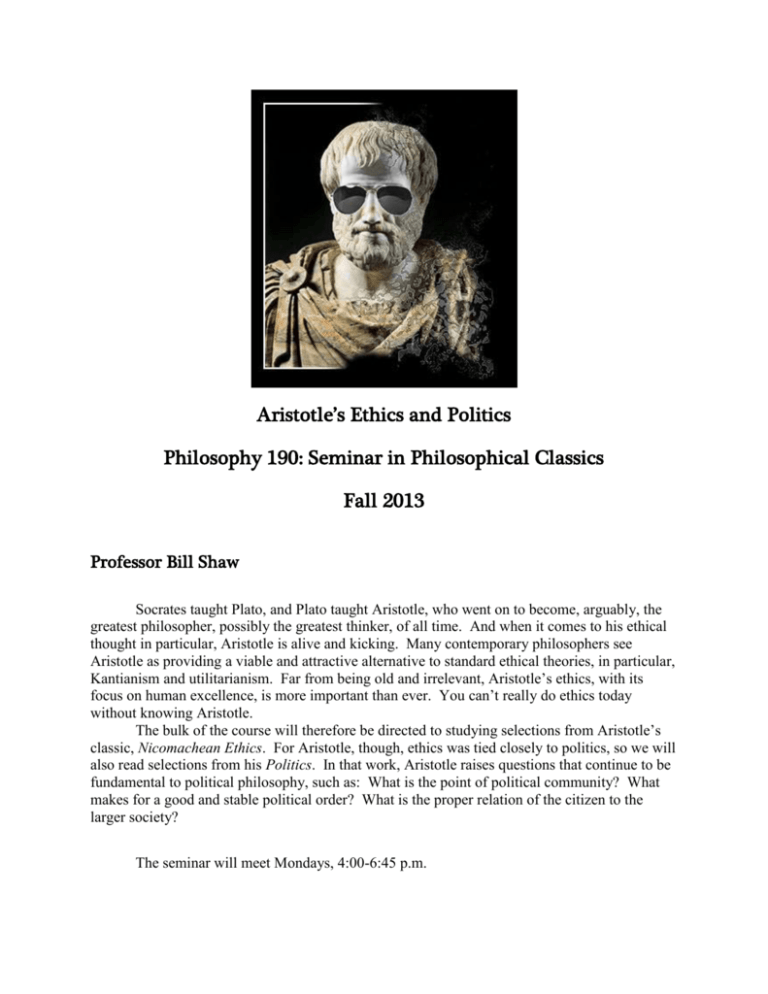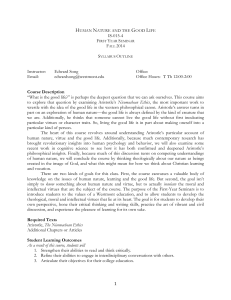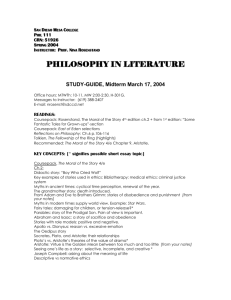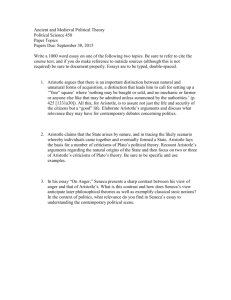Aristotle`s Ethics and Politics Philosophy 190: Seminar in
advertisement

Aristotle’s Ethics and Politics Philosophy 190: Seminar in Philosophical Classics Fall 2013 Professor Bill Shaw Socrates taught Plato, and Plato taught Aristotle, who went on to become, arguably, the greatest philosopher, possibly the greatest thinker, of all time. And when it comes to his ethical thought in particular, Aristotle is alive and kicking. Many contemporary philosophers see Aristotle as providing a viable and attractive alternative to standard ethical theories, in particular, Kantianism and utilitarianism. Far from being old and irrelevant, Aristotle’s ethics, with its focus on human excellence, is more important than ever. You can’t really do ethics today without knowing Aristotle. The bulk of the course will therefore be directed to studying selections from Aristotle’s classic, Nicomachean Ethics. For Aristotle, though, ethics was tied closely to politics, so we will also read selections from his Politics. In that work, Aristotle raises questions that continue to be fundamental to political philosophy, such as: What is the point of political community? What makes for a good and stable political order? What is the proper relation of the citizen to the larger society? The seminar will meet Mondays, 4:00-6:45 p.m.











